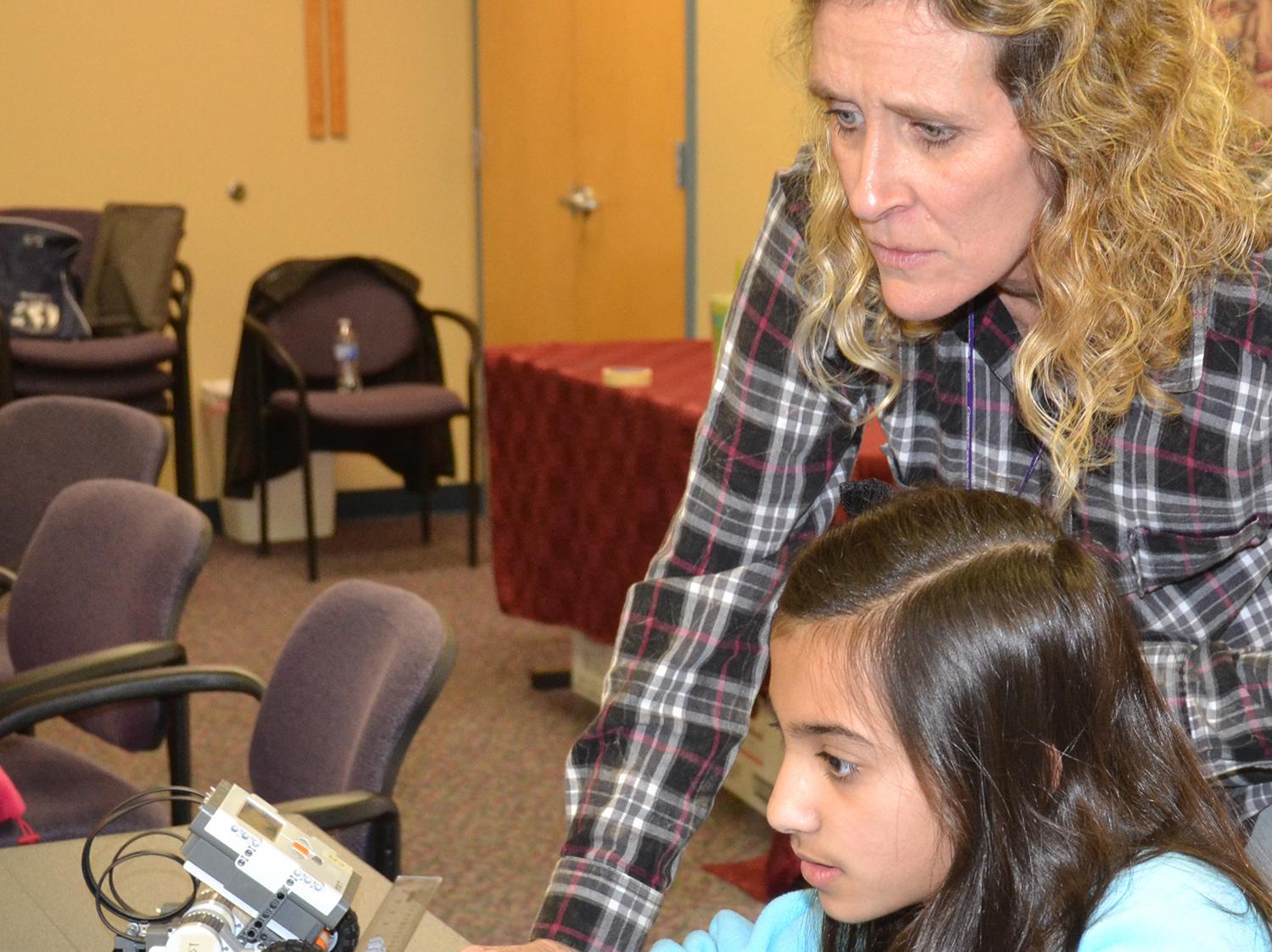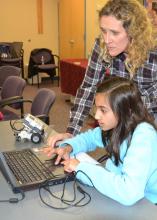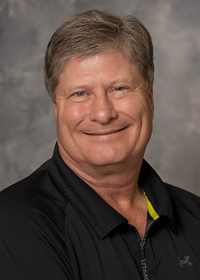Information Possibly Outdated
The information presented on this page was originally released on March 7, 2016. It may not be outdated, but please search our site for more current information. If you plan to quote or reference this information in a publication, please check with the Extension specialist or author before proceeding.
Popular program helps kids learn STEM concepts
MADISON, Miss. -- Jaclyn Anderson admits her strong suit is not math or science, but that did not stop her from providing a robotics class for children at the Rebecca Baine Rigby Library in Madison.
“I really wanted to have this program for the kids,” said Anderson, youth services director with the Madison County Library System. “We had done a very basic class two summers ago, but it wasn’t a hands-on class because we didn’t have any robots or computers or computer software. We just showed them how to build a circuit.”
So many children were interested after that initial class that Anderson decided to create a robotics club. So, she did a lot of research and asked Greg Biggs, 4-H agent with the Mississippi State University Extension Service in Madison County, for some technical help.
“4-H strives to help kids ‘learn by doing,’ and robotics is a great way to get kids interested in science, technology, engineering and math, or STEM-related projects,” Biggs said. “Anytime we can collaborate with partners in our community to bring these programs to children, we do that.”
Biggs set up Anderson with Madison County 4-H’er Hallie Westbrook, as well as her mother and brother. The Westbrooks, who have been involved with 4-H robotics for several years, helped Anderson with the library’s pilot class in the fall of 2014.
“It was really a lot of fun,” said Hallie Westbrook, who competed on a 4-H robotics team for three years and coached a 4-H team for a year. “I love robotics, and I love coaching others who are learning about robotics. That is really more exciting for me than competing.”
Following the pilot class, Anderson began working on getting the funding to buy five NXT Lego Mindstorms robotics kits and the computer software to program them.
“That first class two years ago showed us that we had kids who were really interested,” she said. “The room was packed every month even though all they could do was watch.”
In September 2015, Anderson held her first six-week robotics workshop. Each workshop is open to 15 children who are 10 or older.
“We target younger children, because some schools offer robotics classes at the middle school level,” Anderson said. “So we wanted this workshop to be open to kids who are homeschooled or don’t have robotics in their schools.”
The program is wildly popular, she said.
“We have a waiting list a mile long,” Anderson said. “Each group meets six times over the span of a few months. Then we start a new group of 15 kids so that everyone who is interested has a chance to learn the basics.”
Anderson, along with children’s librarian Becky Bowen and youth services programming coordinator Jason Sharp work with the group twice a month. The children work in teams of three to program their robots to do tasks, such as turn in a circle or navigate a simple maze.
It is not as easy as entering a few numbers into an equation and downloading it to the robot. Workshop participants must first figure out what numbers they need to calculate the math correctly. For example, to get the robot to turn in a circle, the students first had to determine that they needed to measure the number of inches from the center of one wheel on the robot to the center of the opposite wheel. They then had to calculate a series of equations to produce the numbers they needed to enter into the computer program.
“Even though this is a beginner’s class, it requires a lot of critical thinking and problem solving,” Anderson said. “It’s not easy, even for me. But it is a lot of fun.”
Whitney McCarter, who participated in the first workshop in September, agrees. It took her a while to come to that conclusion, though.
“I had tried the type of programming you use for robotics before, and I wasn’t good at it at all. I didn’t really like it either,” said 11-year-old McCarter, who is also a Madison County 4-H’er. “My brother was in the class, and my mom kept trying to convince me to join. She said, ‘You need to give it another try. You might like it this time.’ Finally I agreed.”
She was hooked.
“I loved it,” McCarter said. “We get to assemble something and code it to do different things. It’s really interesting to see something come to life.”




